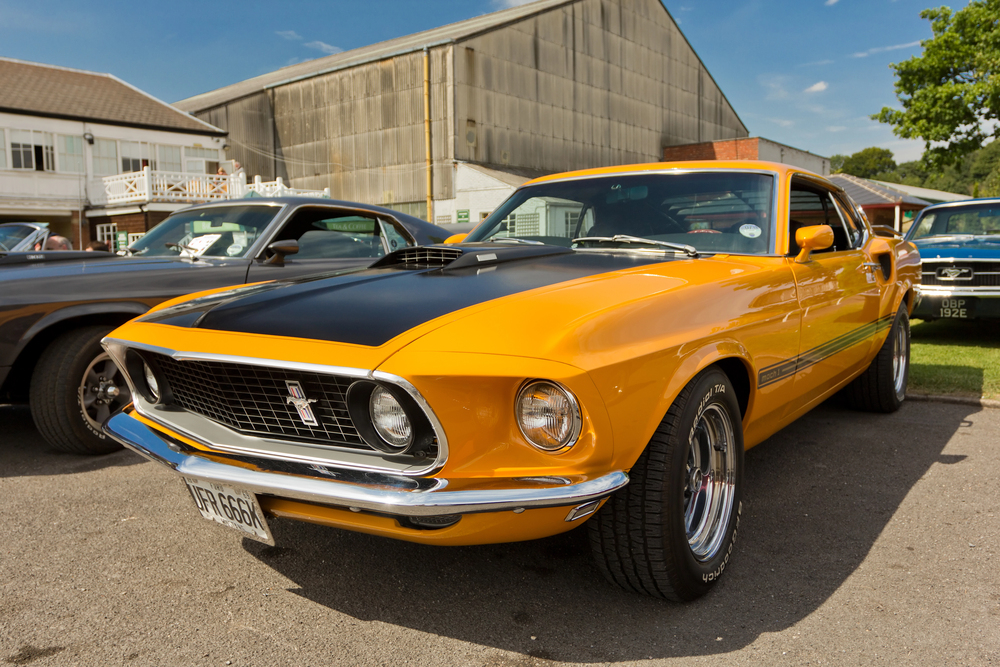Over the years, the German manufacturer has produced vehicles that have not only shaped the automotive industry but have also set new standards in design, performance, and technology. At the BMW Museum, you’ll find a collection of some of the most groundbreaking cars ever produced, each one a testament to the brand’s commitment to redefining what a car can be. These vehicles pushed the envelope of automotive design, challenging conventions and nearly breaking the rules of what was considered possible. Here are 11 of the most revolutionary BMW cars that made a significant impact on the automotive world.
BMW 328 Roadster (1936)

The 1936 BMW 328 Roadster was a revolutionary sports car of its time. Its sleek design and lightweight construction set the stage for the future of roadsters and sports cars in general. Its success in motorsport solidified BMW’s reputation as a performance-oriented brand.
BMW 507 (1956)

The BMW 507 was an iconic roadster that challenged the norms of luxury and design in the 1950s. Its low-slung body and exquisite lines brought attention from some of Hollywood’s elite, making it a symbol of elegance. Though production was limited, its impact on automotive design remains undeniable.
BMW 2002 Turbo (1973)

The BMW 2002 Turbo is credited as one of the first true “hot hatches” in automotive history. Its small size, powerful engine, and distinctive “Turbo” badge helped establish the performance hatchback segment. It marked a major shift in what was possible in compact car performance.
BMW M1 (1978)

The BMW M1 is one of the brand’s most iconic models, known for its stunning design and unparalleled performance. Built as a supercar, it broke the traditional design mold by incorporating sharp angles and a low profile. The M1’s success in motorsport made it a significant player in automotive history.
Related: 12 Insane Ways Wireless Charging And Smart Dashboards Are Taking Over New Cars
BMW Z1 (1989)

The BMW Z1 was a radical departure from traditional roadster designs, introducing an innovative sliding door system. This unique design, combined with its lightweight construction and performance capabilities, made the Z1 a standout. Its futuristic appeal and rarity make it a coveted classic today.
Related: 12 Shocking Ways Small SUVs Are Making Sedans Obsolete
BMW 850CSi (1992)

The BMW 850CSi pushed the boundaries of luxury and performance in the early ’90s. Its V12 engine and advanced technology made it a performance coupe that was as luxurious as it was fast. The sleek design and powerful engine have made the 850CSi a timeless symbol of automotive excellence.
Related: 11 Shocking Differences Between Hybrids And Plug-in Hybrids You Need To Know Before Buying
BMW 7 Series (2001)

The BMW 7 Series of the early 2000s introduced innovative technologies that challenged conventional thinking in luxury sedans. Its inclusion of advanced electronics, such as iDrive, and a powerful V8 engine, brought a new level of sophistication to the luxury car market. The 7 Series set a new benchmark for technological advancements in vehicles.
Related: 14 Shocking Truths Behind the Sudden Revival of Budget-Friendly Compact Cars
BMW X5 (1999)

The BMW X5 was a game-changer in the luxury SUV market, blending the performance of a BMW with the versatility of an SUV. The X5’s introduction marked BMW’s shift into the crossover market, creating a new segment of luxury vehicles. Its unique combination of sports car handling and SUV utility was groundbreaking for its time.
Related: 13 Mind-Blowing Battery Innovations That Will Kill The Gas Pump Forever
BMW i3 (2013)

The BMW i3 was one of the first mass-produced electric vehicles to break away from traditional design principles. Its futuristic design, use of sustainable materials, and cutting-edge technology made it a bold statement in the world of electric vehicles. The i3 challenged the preconceived notions of what an electric car could look like and perform like.
Related: 12 Reasons Why More Car Lovers Are Switching To Hybrid Vehicles
BMW i8 (2014)

The BMW i8 was a hybrid sports car that blended futuristic design with cutting-edge technology. Its striking, angular lines and use of carbon fiber made it an instant design icon. The i8 proved that high performance and sustainability could coexist, paving the way for the future of eco-friendly performance cars.
Related: 11 Honda Ridgeline Secrets That Will Instantly Upgrade Your Ride
BMW Vision Next 100 (2016)

The BMW Vision Next 100 concept car broke every design rule by combining futuristic technology with extreme design. Its sleek, almost organic body shape and self-driving capabilities pointed towards the future of mobility. The Vision Next 100 wasn’t just a car; it was a vision of what BMW believed the future of transportation could look like.
Related: 11 Genius Eletric Vehicle Hacks That Instantly Boost Your Battery Range
BMW’s legacy of groundbreaking designs is evident in the cars that have shaped its history, each one breaking new ground in the automotive industry. From the revolutionary BMW 328 Roadster to the futuristic BMW Vision Next 100, these cars pushed the limits of what was possible and challenged traditional design thinking. BMW’s commitment to blending performance, luxury, and technology has led to the creation of some of the most iconic cars in automotive history. As we look to the future, it’s clear that BMW will continue to redefine the rules of automotive design.
Disclaimer: This list is solely the author’s opinion based on research and publicly available information.
13 Obscure German Automakers That Built Incredible Cars

Germany is known for producing some of the finest automobiles in the world, with brands like BMW, Mercedes-Benz, and Porsche leading the industry. However, beyond these giants, many lesser-known German manufacturers have built incredible cars that deserve recognition. These companies often pushed the boundaries of design, engineering, and performance, leaving a lasting impact on the automotive world.
Read it here: 13 Obscure German Automakers That Built Incredible Cars
14 Reasons Manual Transmissions Are Disappearing (And Why Some Drivers Are Fighting Back)

The decline of manual transmissions has been a slow but steady shift in the automotive world, driven by advancements in technology, efficiency concerns, and changing consumer preferences. Despite this, a passionate group of enthusiasts refuses to let manuals disappear without a fight, advocating for their engagement, control, and nostalgic charm. While automakers are phasing out stick shifts in favor of automatic and electric alternatives, the debate over their place in modern vehicles remains strong.
Read it here: 14 Reasons Manual Transmissions Are Disappearing (And Why Some Drivers Are Fighting Back)
13 German Luxury Cars That Perform Like Supercars For Half The Price

German automakers have long been known for blending high performance with world-class luxury, but not every speed machine has to come with an eye-watering price tag. Some of the most thrilling, track-ready models offer supercar-level acceleration, razor-sharp handling, and high-end comfort, without costing millions. If you want exotic car performance with premium German engineering at a fraction of the cost, these 13 incredible luxury cars deliver heart-racing excitement, everyday usability, and pure automotive excellence without completely breaking your bank account.
Read it here: 13 German Luxury Cars That Perform Like Supercars For Half The Price
You’ll love these related posts:
- 14 Greatest Cars Ever Made In Brazil
- 11 Reasons Massaging Seats And Smart Climate Control Are Blowing Up Right Now
- 11 Anti-Theft Features That Could Save Your Car From Being Stolen
- 12 Genius Reasons Rear Seat Passenger Detection Is Now A Must-Have
- 11 Awesome Reasons Why Automakers Are Turning Car Interiors Into High Tech Lounges


